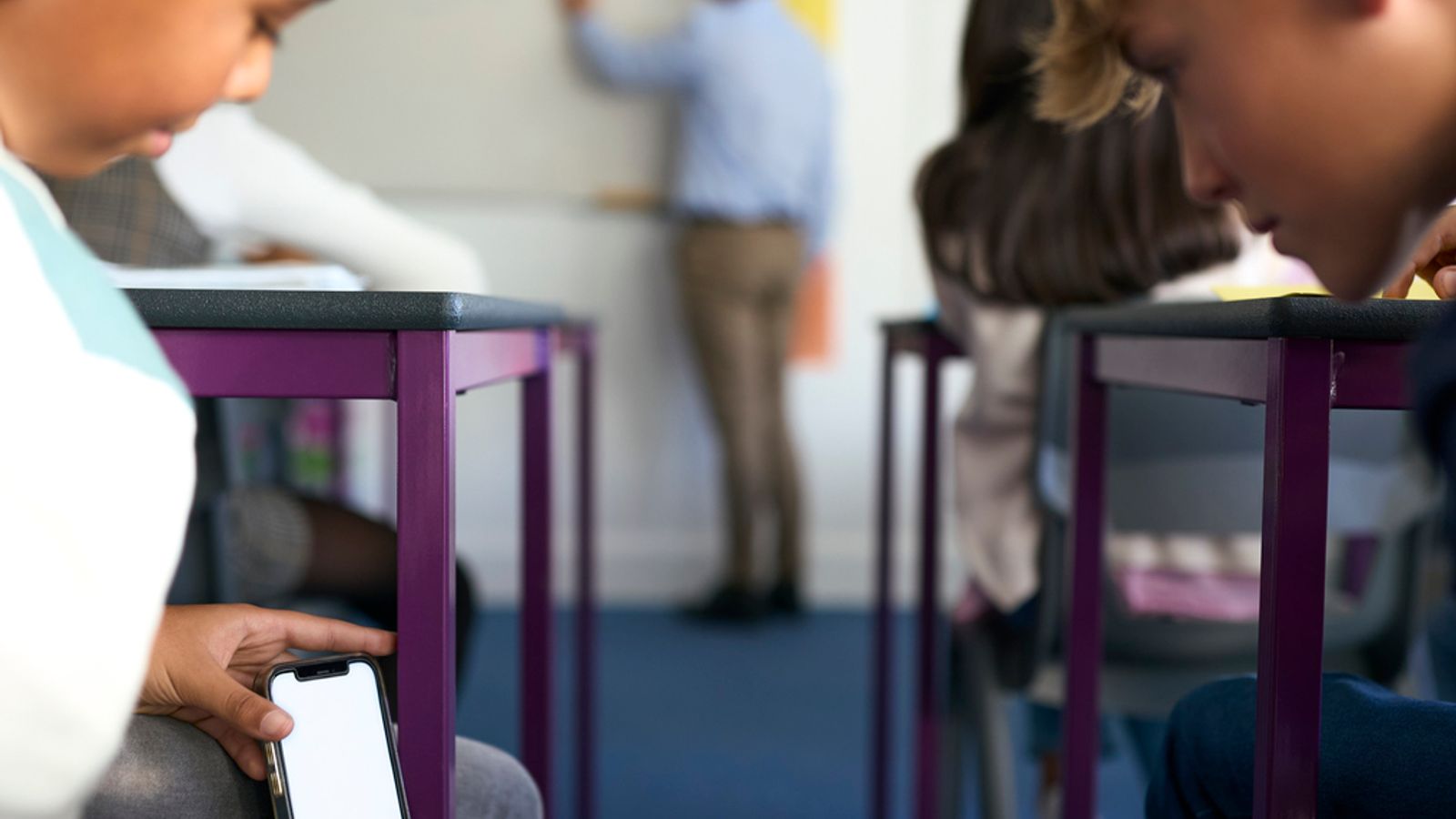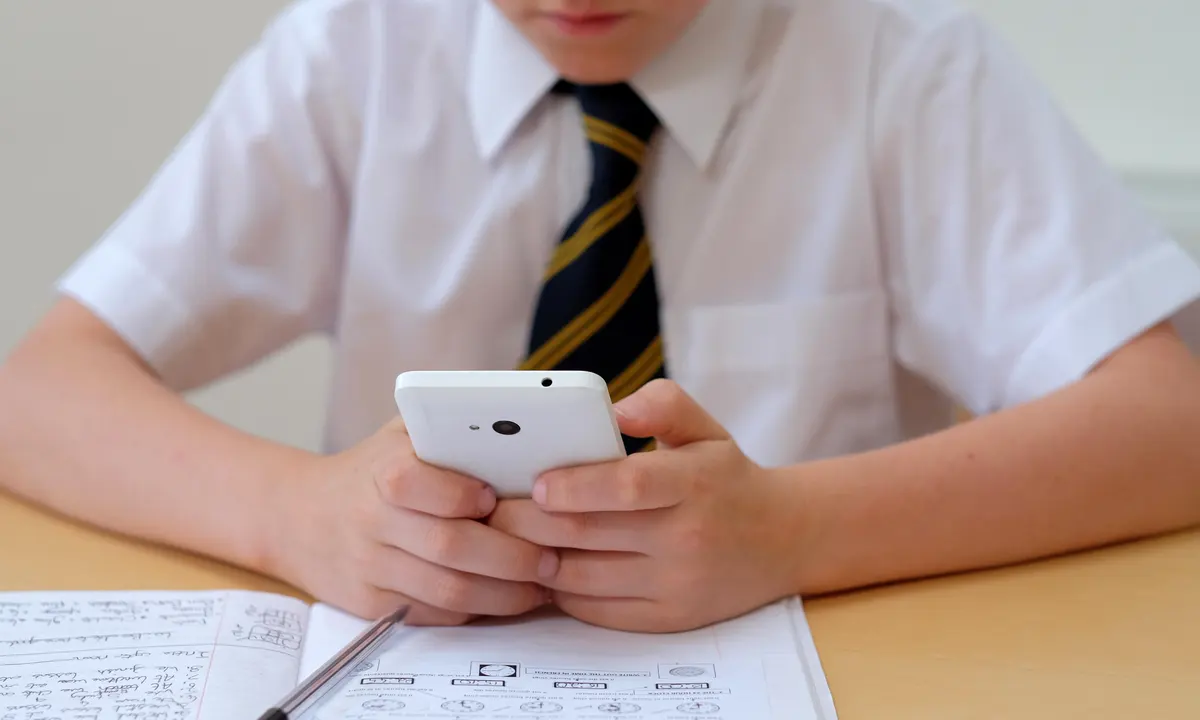In an era where digital devices are nearly as essential as textbooks in the educational landscape, the UK is taking a significant step towards reshaping the role of technology in classrooms. Drawing inspiration from its European counterparts, the UK government has announced a set of guidelines aimed at limiting the use of mobile phones in schools, a move that could redefine the learning environment for students across the country.

UK Govt. :The Rationale Behind the Ban
The ubiquity of mobile phones among students of all ages has sparked a debate on the balance between convenience and distraction. While these devices have become a standard accessory in the pockets of young and old alike, concerns over their impact on children’s well-being and their ability to focus in educational settings have grown louder.
Countries like France and Italy have already taken steps to curb phone usage in classrooms, and the UK is poised to follow suit. Gillian Keegan, the UK’s Secretary of State for Education, emphasizes the government’s stance, stating, “This is about achieving clarity and consistency in practice, backing headteachers and leaders, and giving staff confidence to act.”
She further elaborates on the dual nature of today’s digital world, acknowledging the myriad opportunities it presents while also highlighting the challenges, particularly for the younger generation navigating their lives both online and offline.
Crafting a Distraction-Free Learning Environment
The proposed guidelines offer schools a framework to create policies that suit their unique environments, with options ranging from a total ban on mobile phones on school premises to more moderate approaches like having students hand in their devices upon arrival or storing them in lockers during school hours.
The aim is to strike a balance between mitigating the risks associated with mobile phone use, such as distraction and the potential negative impact on mental health due to social media, and recognizing the practicality of students needing their phones for safety reasons during their commute.

The Benefits of a Phone-Free Zone
Beyond the goal of reducing distractions, the UK government’s guidance sheds light on the broader benefits of restricting mobile phone use in schools. By limiting access to these devices, the initiative seeks to foster an environment where students can engage more deeply in their studies, participate in physical activity, and enjoy face-to-face interactions with their peers.
The guidance also underscores the importance of educating students on the potential harms of excessive mobile phone use, particularly about social media’s impact on mental health.
With everything that is going on in the UK , and all the problems we face –@RishiSunak
decides now is the time, to address the one pressing problem that we are ALL talking about….….mobile phones in schools …
Most schools already ban them as a point of internal… pic.twitter.com/qOolITRv3o
— AntiCensorship (@truthscant) February 19, 2024
Engaging Parents in the Digital Dialogue
Recognizing the pivotal role parents play in reinforcing these policies, the guidance encourages open communication between schools and families.
Parents are urged to contact schools directly for any concerns, bypassing the need for private phones, and to have conversations at home about the rules and risks associated with mobile phone and internet use.

Moving Forward
As the UK takes a firm step towards establishing a more focused and healthy learning environment free from the distractions of mobile phones, it joins a growing list of countries reevaluating the place of digital devices in education.
This initiative not only aims to enhance the quality of education but also to prepare students for a future where they can navigate the digital world responsibly and mindfully.
With the support of educators and parents alike, the UK’s schools may soon see a generation of students who are not only more attentive in class but also more aware of the world around them.









